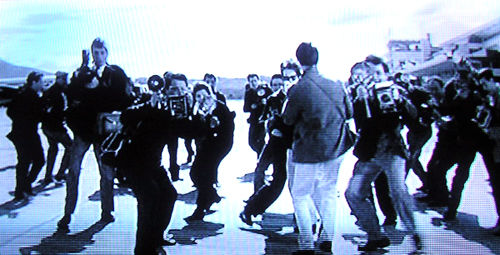 The basis for citizen journalism is that it is news created by the normal citizens. People that are not trained professionally in journalism but still make efforts to report on events in their area or give opinion on what is happening in their nation. This has appeared as an economical way of presenting news especially on a local level. Since many news corporations are feeling the money pinch(newspapers taking the major hit) that has come with free media available online, they have cut news that does not appeal to a wide audience. Essentially they are eliminating unprofitable news in hopes of staying alive and in the black. So citizen journalism as stepped in to fill these gaps, or at least says that is doing that.
The basis for citizen journalism is that it is news created by the normal citizens. People that are not trained professionally in journalism but still make efforts to report on events in their area or give opinion on what is happening in their nation. This has appeared as an economical way of presenting news especially on a local level. Since many news corporations are feeling the money pinch(newspapers taking the major hit) that has come with free media available online, they have cut news that does not appeal to a wide audience. Essentially they are eliminating unprofitable news in hopes of staying alive and in the black. So citizen journalism as stepped in to fill these gaps, or at least says that is doing that.Citizen are able to become journalists themselves because the amount and effort required to be published has be reduced to almost zero by the internet and other tools. Virtually everyone as a digital camera of some sort, whether on their cell phone or in their purse. So when news 'breaks' they can just take a picture and upload it instantly to the internet. So when a mysterious missile appears in the sky off of the California coast, why wait for the mainstream media to tell you what it is? Just snap a photo and put your own conspiracy theories online via Twitter.

The digital tools that make this possible are endless.
-Facebook-
-Twitter-
-Blogs-
-Comments-(when you comment on anything online you participate in journalism)
So at the core of citizen journalism is the conversation that goes on about the current topics. Instead of listening to everything that someone tells you is important you decide what is and then write about it. It is the dream come true of every America. We have long since thought that we control our own destinies, now we even control the media because we are the media. Its perfect, right? Maybe, maybe not.
There are definitely things that are lost without professional journalism. Citizens just do not have the same resources that a professional journalist would have. A citizen based news group cannot travel to other countries and cover news there and I don't think that we can replicate the quality of news that professionals produce. At the same time I think that professionals often overlook opinions of the people and focus too much on making money. There definitely needs to be a healthy balance between the two. It is just going to take some time to get there.
More opinion:
Leaning more in favor of citizen journalism
Leaning more in favor of professional journalism





![[photo.JPG]](https://blogger.googleusercontent.com/img/b/R29vZ2xl/AVvXsEjRXj0STaL3NWw-fAZelekat5anc7Fg5h64HxjOqo0eDYh0IHOoU9LbFGJalvv9Nhwq-9MTSD7egIpLQSXZzg6sTbtUELGoPhCAGARoLIfGdD5ghb4Oh5J7oSkrnnrCpzTsy6AOEixRnHvN/s220/photo.JPG)




